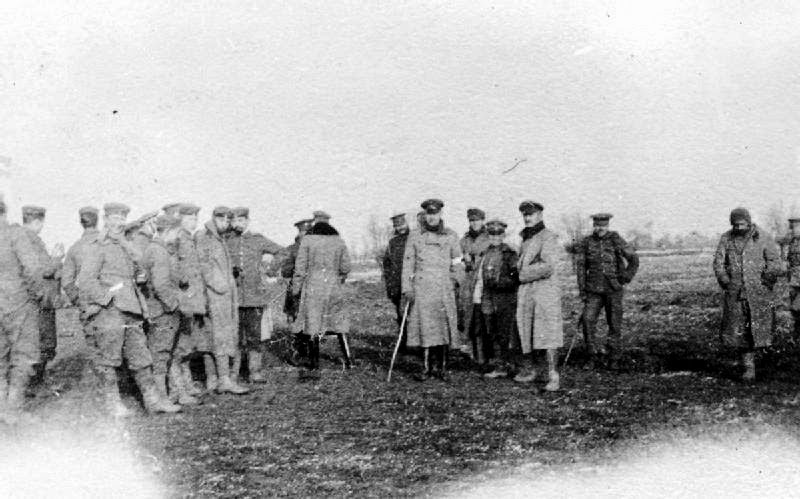July 31st 1914
On July 31, the Austrian Crown Council decided to continue the war against Serbia, and to ignore the dangers of Russian mobilisation in the expectation of German support. Nicholas wrote to Wilhelm to promise him that Russian general mobilisation was not aimed as a prelude to war, and stated:
"I thank you heartily for your mediation which begins to give one hope that all may yet end peacefully. It is technically impossible to our military preparations which were obligatory owing to Austria’s mobilisation. We are far from wishing war. As long as the negotiations with Austria on Serbia’s account are taking place my troops shall not make any provocative action. I give you my solemn word for this."
The German Ambassador in Paris delivered an ultimatum to Premier Viviani telling him that if Russia did not stop its mobilisation, then Germany would attack France. Viviani, newly arrived back in France, knew nothing of a Russian general mobilisation, and asked his ambassador in St. Petersburg for information. Marshal Joesph Joffre of the French Army asked for permission to order a general mobilisation. His request was refused.
German mobilisation - When the word reached Berlin of Russian general mobilisation, Wilhelm agreed to sign the orders for German mobilisation, and German troops began preparations to enter Luxembourg and Belgium as a preliminary towards invading France. As the historian Fritz Fischer noted, Bethmann Hollweg’s gamble in waiting for Russian mobilisation had paid off, and the Social Democrats rallied to support the government. The Bavarian military attaché recorded that he learned of Russian mobilisation:
“I run to the War Ministry. Beaming faces everywhere. Everyone is shaking hands in the corridors: people congratulate one another one for being over the hurdle.”
Rumours arrive in London of German troops crossing the French frontier – true or not, they are reported as fact and help to fuel a growing sense that Germany wants trouble
Under the Schlieffen Plan, for Germany to mobilise was to mean war because as part of the plan, German troops as they were called up were to invade Belgium automatically. Unlike the war plans of the other powers, for Germany to mobilise was to go to war. Both Moltke and Falkenhayn told the government that Germany should declare war even were Russia to offer to negotiate.
Declaration of war from the German Empire 31 July 1914. Signed by the German Kaiser Wilhelm II. Countersigned by the Reichs-Chancellor Bethmann-Hollweg
In London, Asquith wrote to Stanley that “the general opinion at present—particularly strong in the City—is to keep out at all costs”. The British Cabinet was badly divided with David Lloyd George, the Chancellor of the Exchequer being strongly opposed to Britain becoming involved in a war. The Conservatives promised the government if the anti-war Liberal ministers were to resign, they would enter the government to support going to war. F.E. Smith told Churchill that the Conservatives would support a war against Germany were France attacked.
Sir Edward Grey goes to the furthest possible limit in endeavouring to persuade Germany to assist him in squaring matters between Austria and Serbia. Asks France and Germany whether they intend to respect Belgian neutrality; France says, "certainly", Germany refuses to reply. British Cabinet not yet prepared to give France definite pledge of assistance.
Financial crisis in London.
Panic is hitting the markets; the bank rate doubles overnight to 8 per cent and people are queuing at the Bank of England to exchange notes for gold. Stock Exchange closed.
Belgian mobilisation decreed for following day.
Shocking news reaches London in the evening. Jean Jaures, the French Socialist leader and anti-war campaigner – has been assassinated
On July 31st, Kaiser Wilhelm II wrote in a lengthy commentary: "For I no longer have any doubt that England, Russia and France have agreed among themselves—knowing that our treaty obligations compel us to support Austria-Hungary—to use the Austro-Serb conflict as a pretext for waging a war of annihilation against us. ... Our dilemma over keeping faith with the old and honourable Emperor has been exploited to create a situation which gives England the excuse she has been seeking to annihilate us with a spurious appearance of justice on the pretext that she is helping France and maintaining the well-known Balance of Power in Europe, i.e. playing off all European States for her own benefit against us."
Information resourced from the following sites:
http://blog.oup.com/2014/07/31-july-1914-mobilization-means-war/
http://en.wikipedia.org/wiki/July_Ultimatum#Content_of_the_Austro-Hungarian_ultimatum_to_Serbia
http://www.firstworldwar.com/onthisday/1914_07_31.htm
http://www.worldwar1.com/tlplot.htm
http://blogs.telegraph.co.uk/news/richardpreston/100282098/ww1-4-days-to-go-martial-law-declared-in-germany-in-britain-the-bank-rate-doubles-and-the-stock-exchange-closes/
































